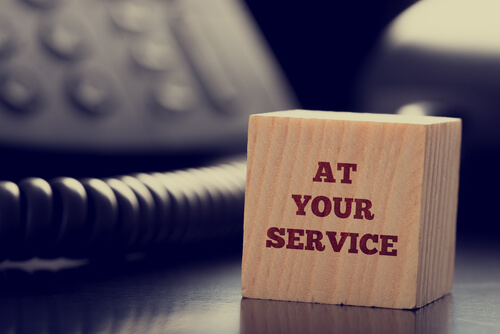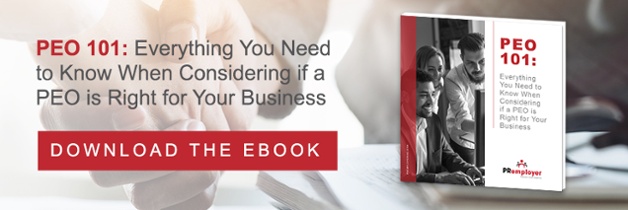
Many service firms are on the small side. A plumber may only have a handful of employees other than themselves. Many janitorial firms are also on the small side, as are medical practices.
Smaller companies often have less efficiency because they don't have the economy of scale to help them negotiate with vendors, having to take what they can get. And as they grow, the number of administrative tasks increases, sometimes faster than the availability of employees to handle them. That includes administrative HR tasks that increase with the number of employees, and even further if you are on a state boundary and start working and employing in a neighboring state.
Administrative Tasks Businesses Face
As your business grows beyond a couple of non-family employees, you face an increasing number of mundane responsibilities. Getting them wrong can have serious negative consequences, including fines for non-compliance, wasted time, and low employee morale, which increases turnover.
Here are some of the most important things to stay aware of:
Payroll Processing
Payroll processing must be done on time with total accuracy to avoid issues. Employees cannot afford to receive late or incorrect paychecks, especially if you have a lot of hourly staff to manage. Payroll tax errors can also get you into trouble with local, state, and federal jurisdictions. It is also time-consuming and tedious, where staff members must check everything multiple times for accuracy. Most small firms can't afford decent payroll processing software that helps them check for errors.
Handling Administrative Burdens
Other HR administrative burdens include onboarding and benefits administration. Employees must be able to get quick answers to their benefits questions instead of waiting until HR "gets around to it."
Setting up retirement plans is also an administrative challenge. (Affording retirement plans in the first place is another major issue). Service companies also have the burden of setting up safety training and ensuring that all employees follow established protocols when dealing with their clients.
Submitting Business Tax Forms
In addition to remitting payroll taxes, your business submits various forms. These include the tax forms associated with onboarding new hires, annual federal unemployment tax returns, employment eligibility forms, and health insurance information. While these are not long forms individually, their large volume adds up. If you have employees receiving tips, that adds another set of documents.
Hiring contractors and freelancers also require unique paperwork processes the company must handle.
Keeping Up with Changing Regulations
Compliance is a full-time job, and small firms cannot afford to hire a full-time compliance officer. Keeping up with ever-changing federal, local, and state regulations can be challenging for these firms. For many service firms, this gets worse. As they expand, they move into different local jurisdictions or even, in some cases, different states. Having employees in another state adds another set of regulations to worry about, and making a mistake here can result in significant fines.
Somebody must handle these tasks, and they can easily spill out of HR onto the office staff and small firms' owners.
How PEOs Help Streamline Business Processes
For many service firms, the solution is to partner with a professional employer organization (PEO). PEOs can handle all these mundane tasks and provide the guidance you need to comply with employment regulations and safety rules.
On top of that, they can also help you provide healthcare and 401(k) benefits at a lower rate, providing your employees with better benefits that can help encourage them to stick around, reducing burdens associated with turnover. Outsourcing these responsibilities to experts reduces your risk of non-compliance and the resulting fines and lawsuits. It takes these concerns out of your daily responsibility so you can focus on growing your business.
Support Your Staff to Grow Quicker
Your HR team spends too much time on mundane matters. Outsourcing them does not replace your team but frees them to focus on supporting your employees. That makes your employees more likely to stick around, develop better skills, and grow their institutional knowledge. They will also better provide the service you sell to your customers.
Good HR support improves employee well-being, increases retention, and leaves a better impression on your customers. Not only do happy employees do better work, but the modern savvy consumer cares about how you treat your people and will be more likely to choose you over your competitors if you have a reputation for treating them well.
A streamlined business is more efficient and can devote more resources to providing the services your clients and customers expect. For service firms, partnering with a PEO helps you increase efficiency, reduce administrative burdens and provide a better level of service that helps your company thrive.

